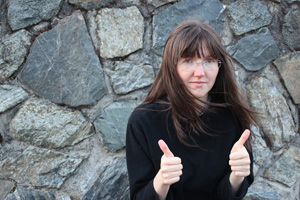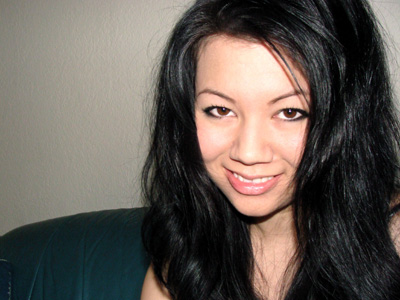Interviews
The Sound of Bees:
Cody Klippenstein in conversation with Erin Frances Fisher
 Erin Frances Fisher talks with Malahat volunteer Cody Klippenstein about her 2012 Open Season Award-winning short story, "Apiculture" (issue #178, Spring 2012).
Erin Frances Fisher talks with Malahat volunteer Cody Klippenstein about her 2012 Open Season Award-winning short story, "Apiculture" (issue #178, Spring 2012).Congratulations on your win! Let’s talk about apiculture. During the writing process, did the bees shape the story or did the story call for bees?
The bees came first. I was interested in the sound, mostly, but as the story came together over many drafts they became their own layers in the writing.
“Bridges,” your story that won PRISM international's 2011 short fiction contest, also features a young protagonist. What draws you to writing from the perspective of children?
I’m interested in child narrators because they are in the process of becoming people, and instead of having a wealth of experience behind them, children are being built by the events that occur in the story.
Zillah is narrating the memory of her sister Aubrey's return home from an undeterminable point in the future. Could you tell us about your decision to make this piece retrospective?
I mentioned I wanted a child narrator who was being built by the events that occur in the story, but I also wanted the depth that is added by the retrospective. At the same time, I didn’t want the future time/place/situation of the narrator to matter. “Apiculture” went through a lot of overhauls, and though it kept its events and plot the whole time, it took a lot of tinkering to get the mechanics working properly.
Zillah and Aubrey’s mother is mentioned once at the beginning of the piece as having left after "the truck accident where she'd...lost her right arm below the elbow" and then she falls away from the narrative. I felt her absence for the rest of the piece. Aubrey, too, seems like she's lost something, though not in a physical sense. Could you tell us more about this connection?
“Apiculture” is full of absence—Aubrey, the mother, and, in the past, the bees. I was interested in exploring Zillah’s bewilderment as her family falls apart in ways that, as a child, she can’t understand but can feel. She comes to understand a connection later, in the retrospective telling of the story, but as to the connection itself I don’t think a specific line can be drawn.
You are also a musician, composer, and a teacher of music. How does music affect your writing?
Writing is a lot like practicing music: putting in work everyday, delighting in finding patterns, being frustrated when it’s not working. I think years of music have probably given me patience. And it’s similar, too, as I’d guess any art is, in structure and phrase and mood.
Who are some authors you're reading right now? What about writers who you consider to have influenced your work?
On my desk: Darwin’s Bastards edited by Zsuzsi Gartner, stories by Lydia Davis, a stack of literary journals. What has inspired me to get to work: Tim Winton’s The Turning, Annabel Lyon’s The Golden Mean, Patrick deWitt’s The Sisters Brothers and many more.
Lastly, what's next for you? Any writing projects planned or in progress?
I’m returning to UVic in the fall for an MFA. Other than that, just keep writing and teaching.

Cody Klippenstein
* * * * * * * *
Check out the guidelines for our 2013 Open Season Awards.









